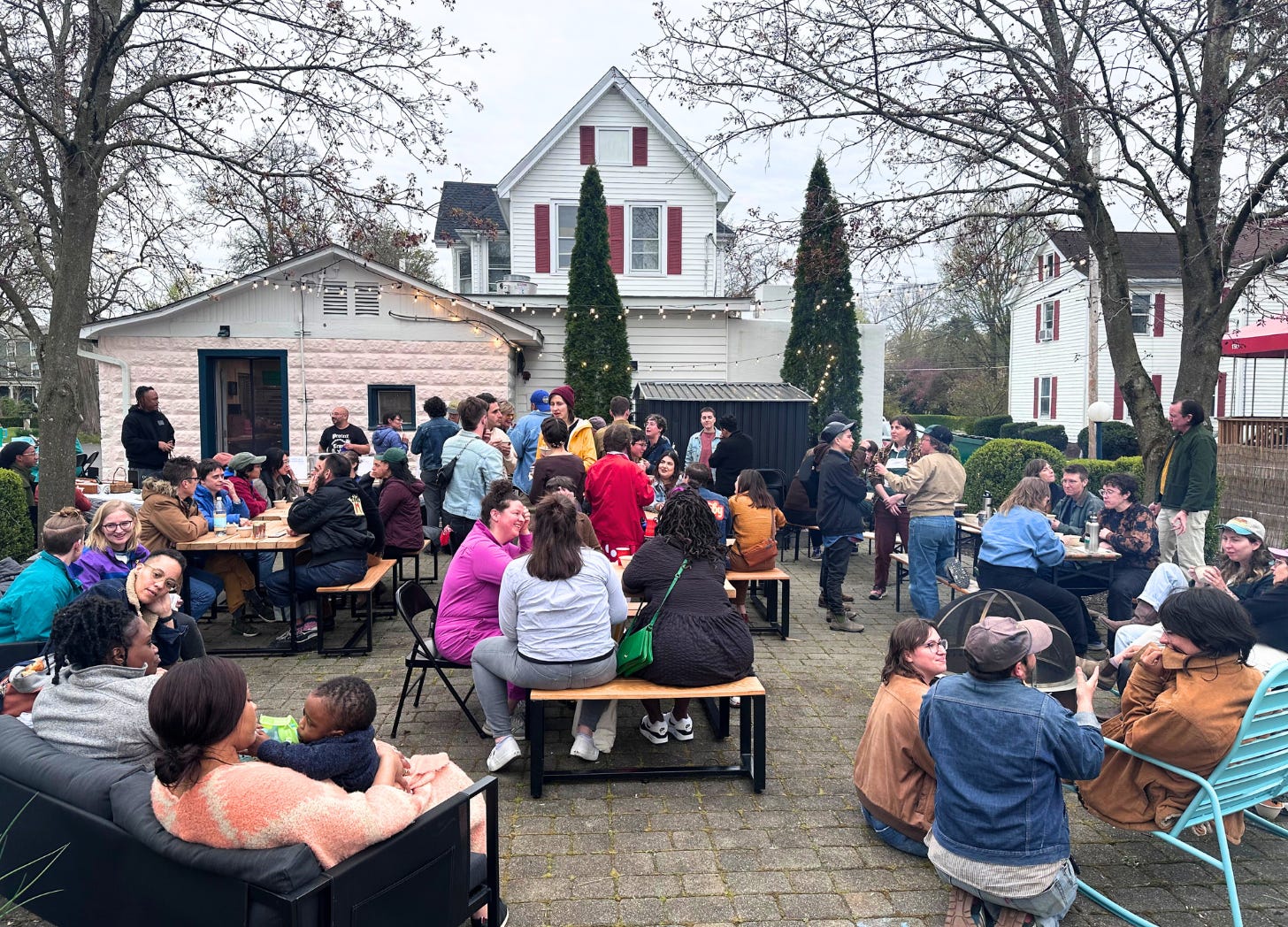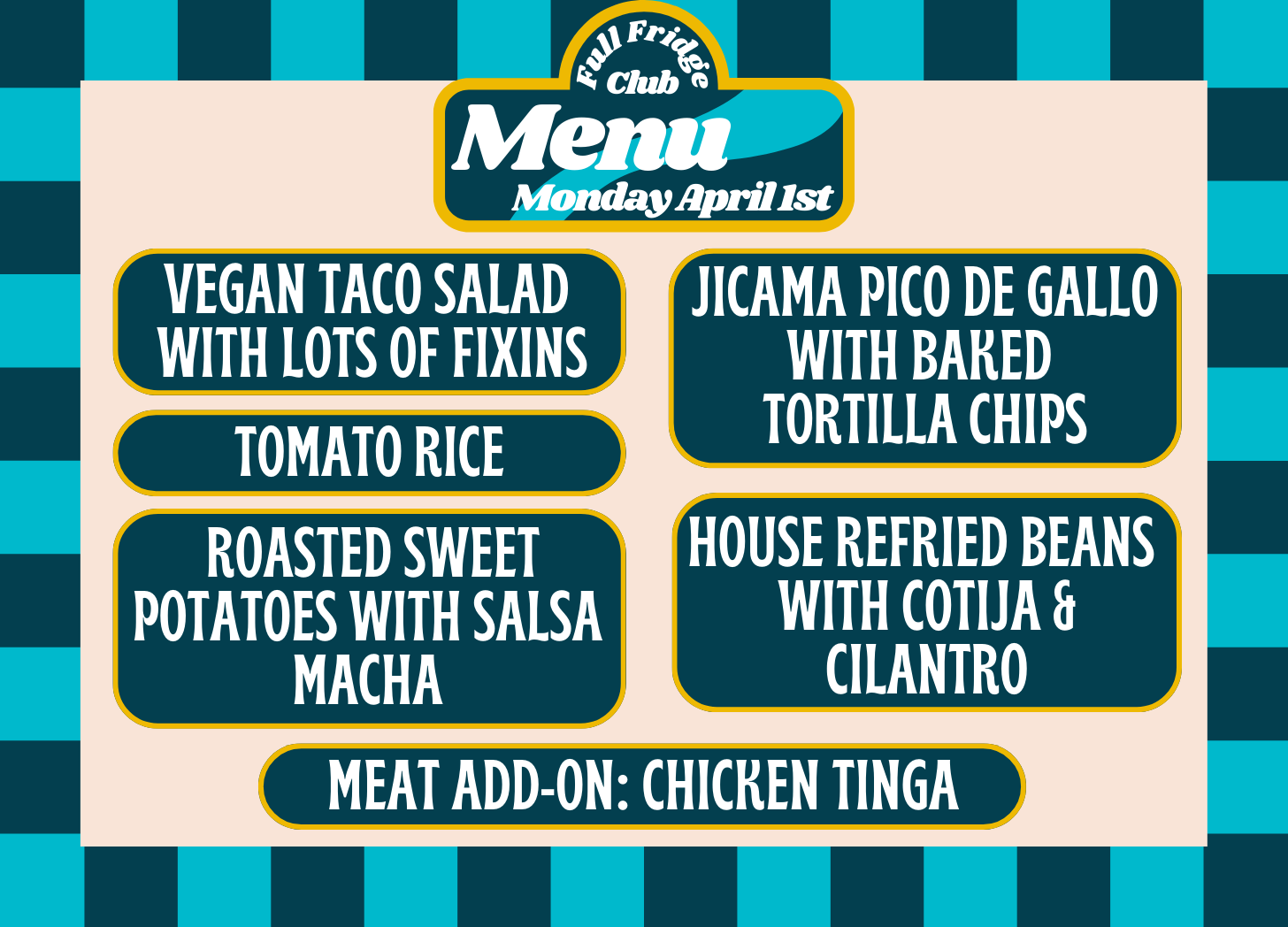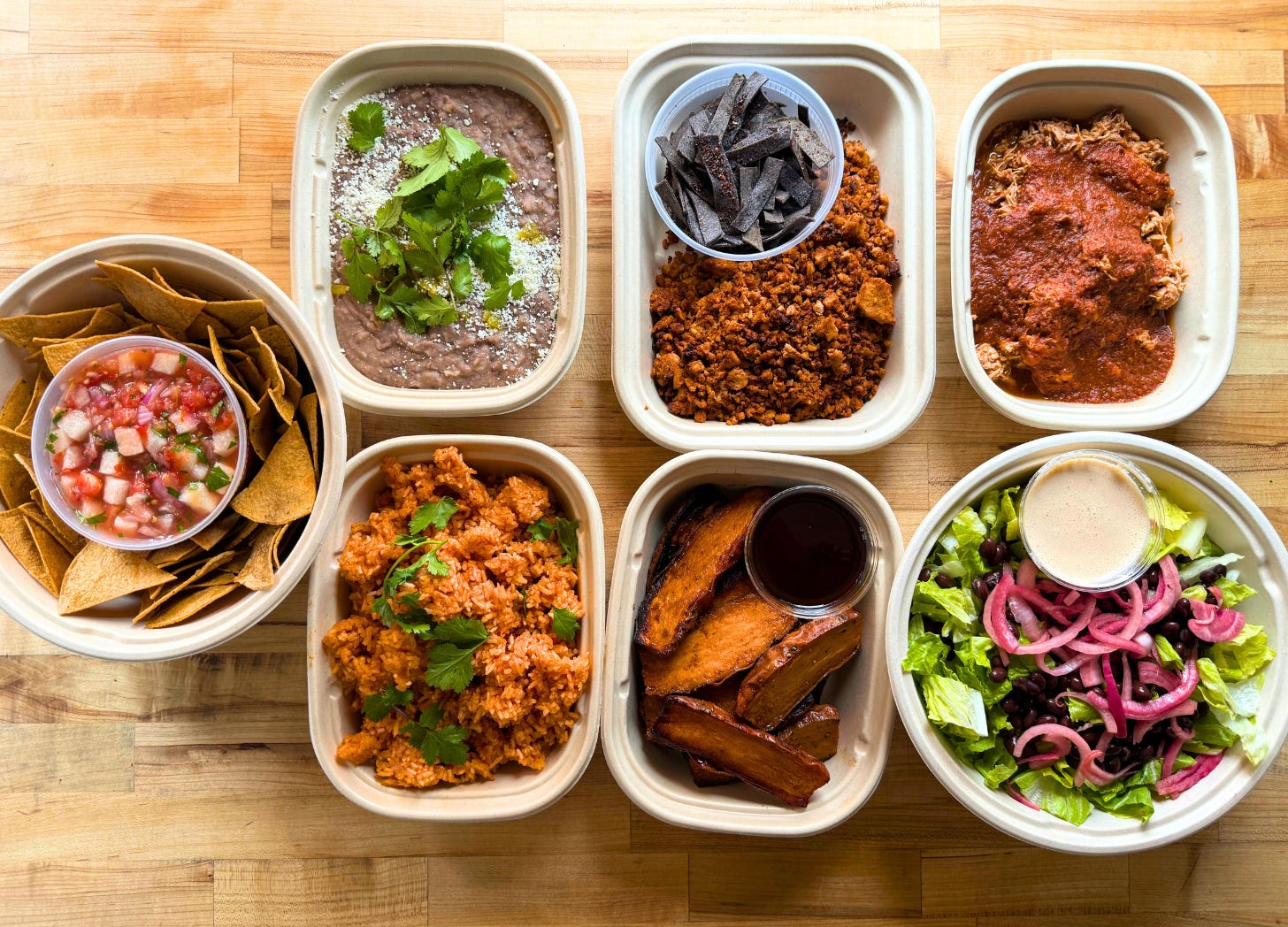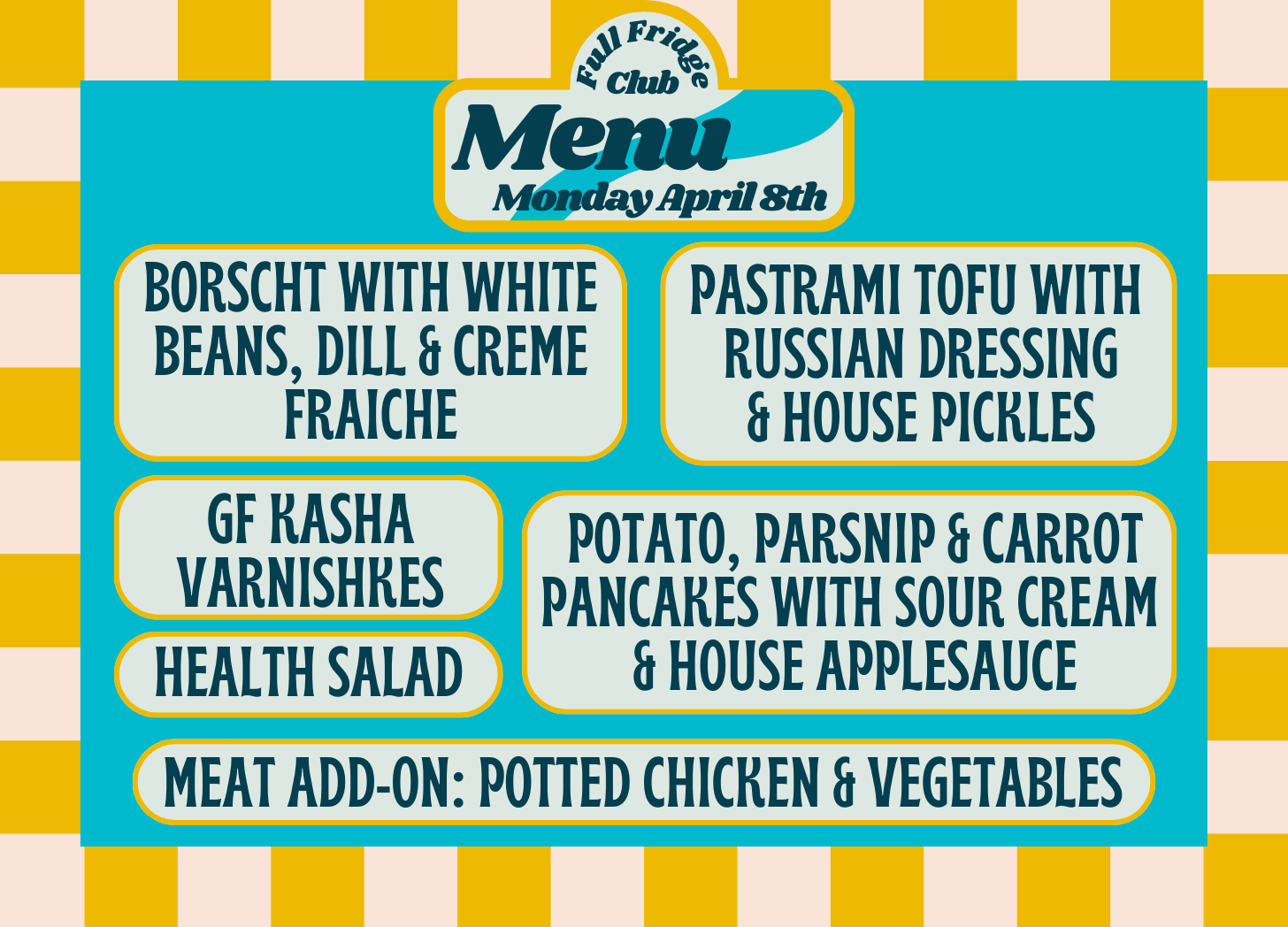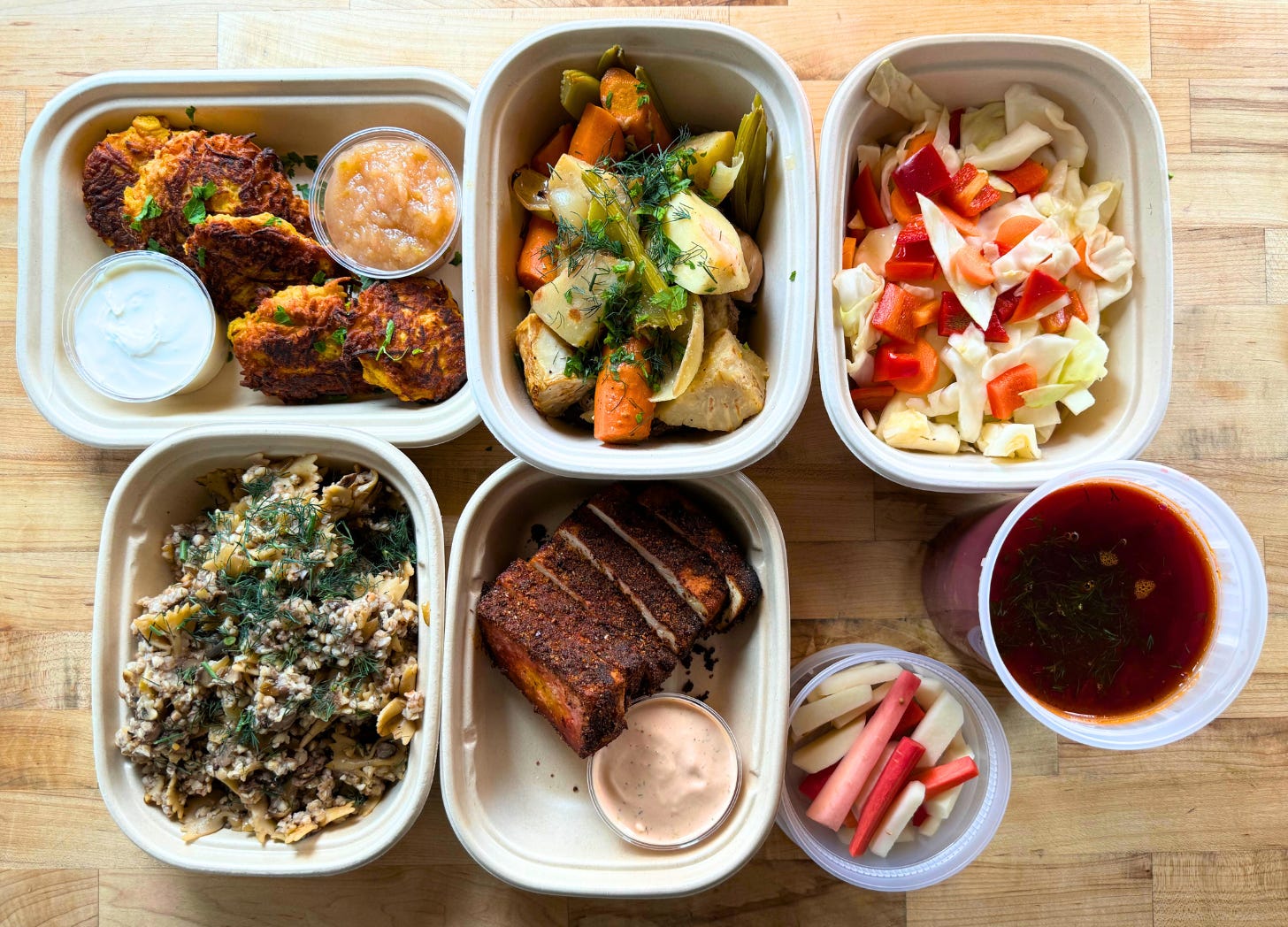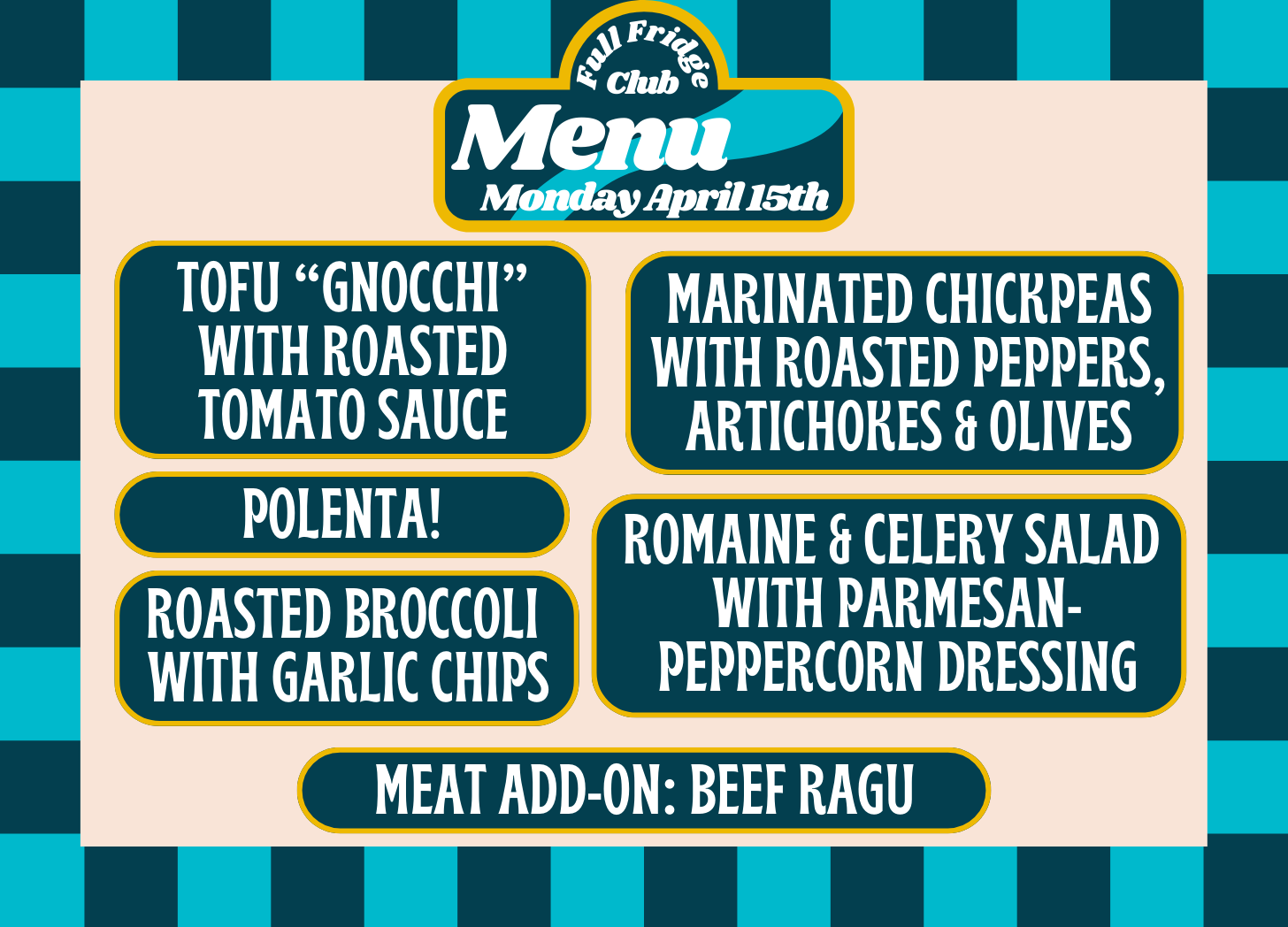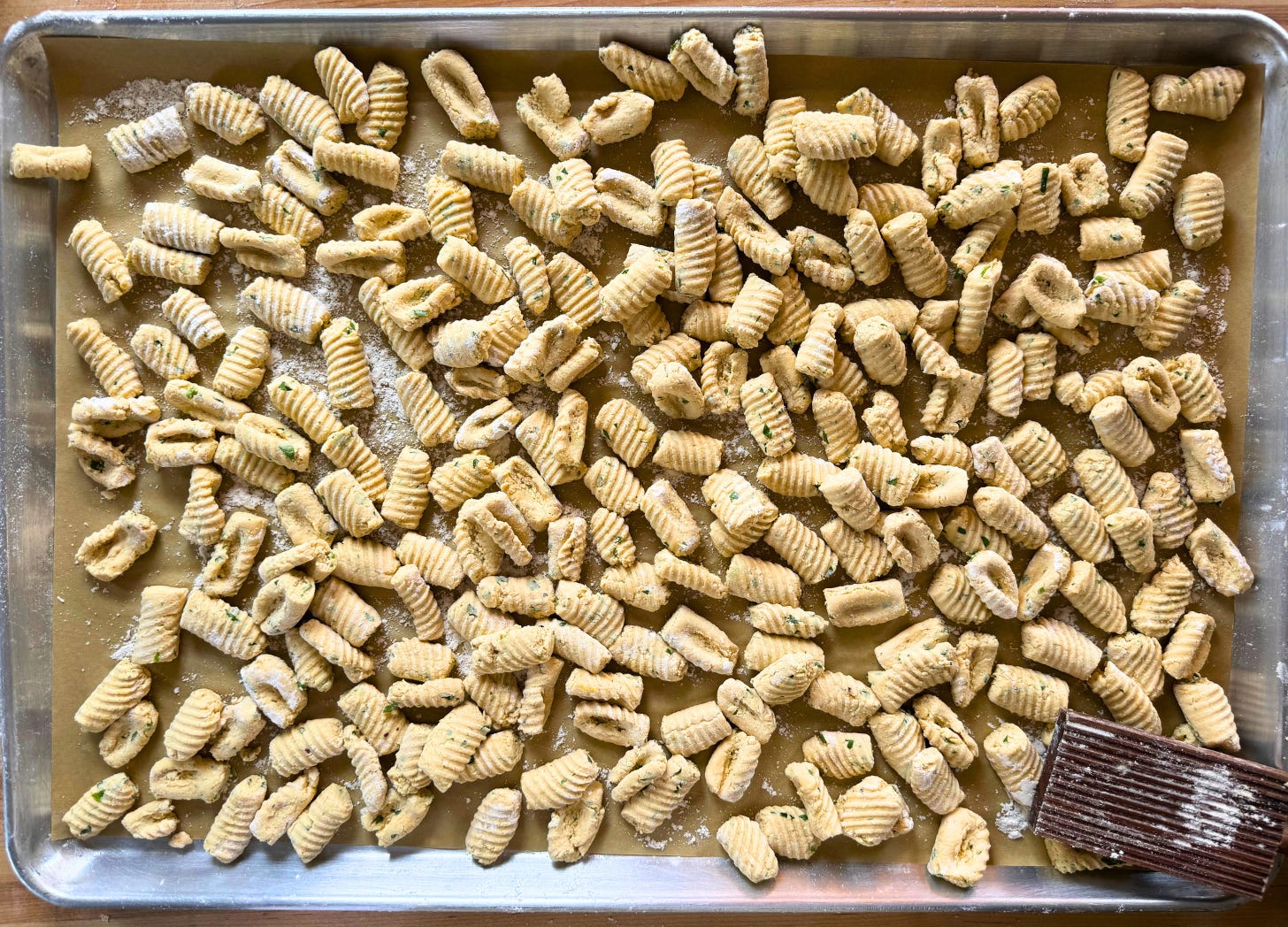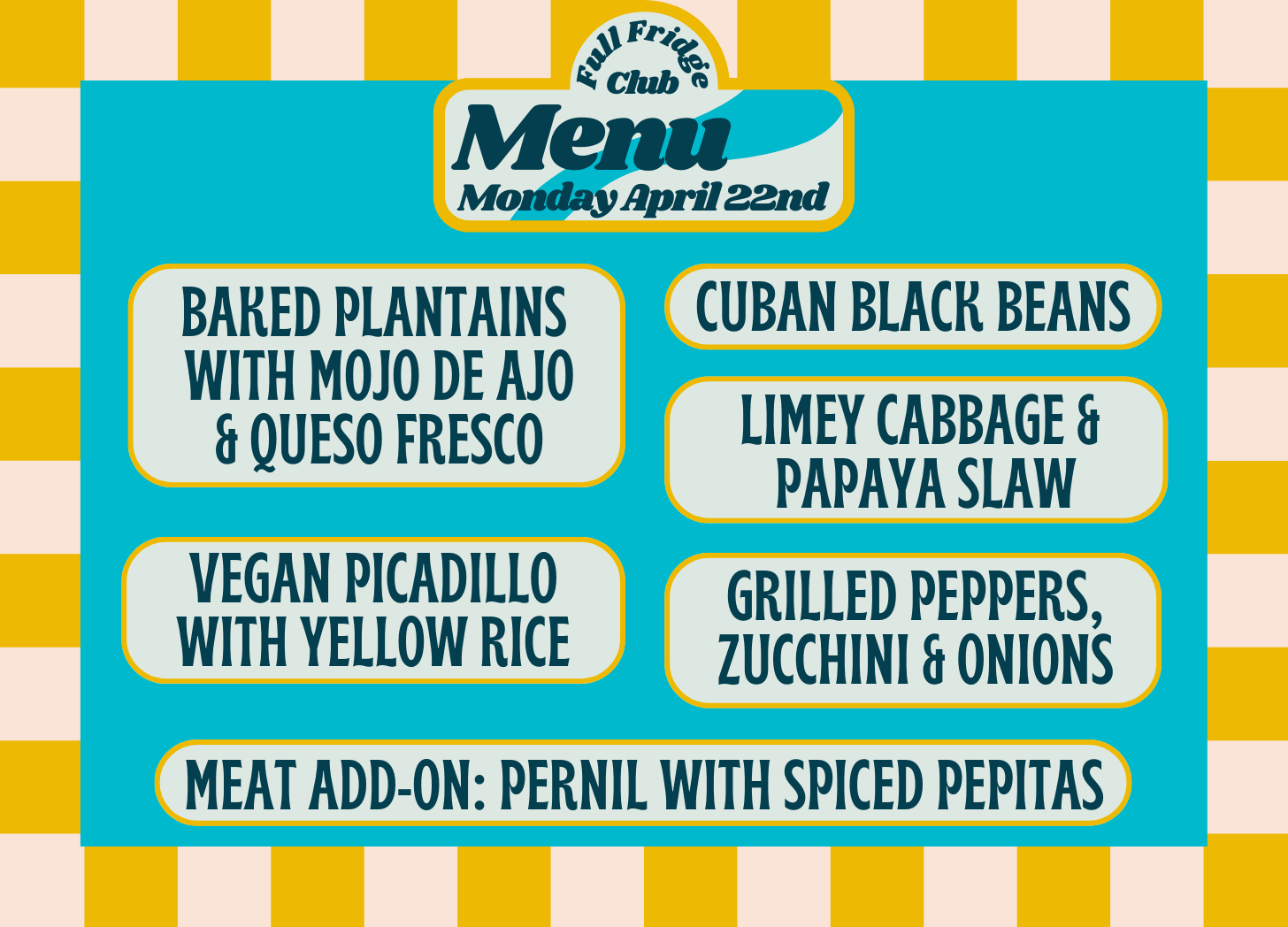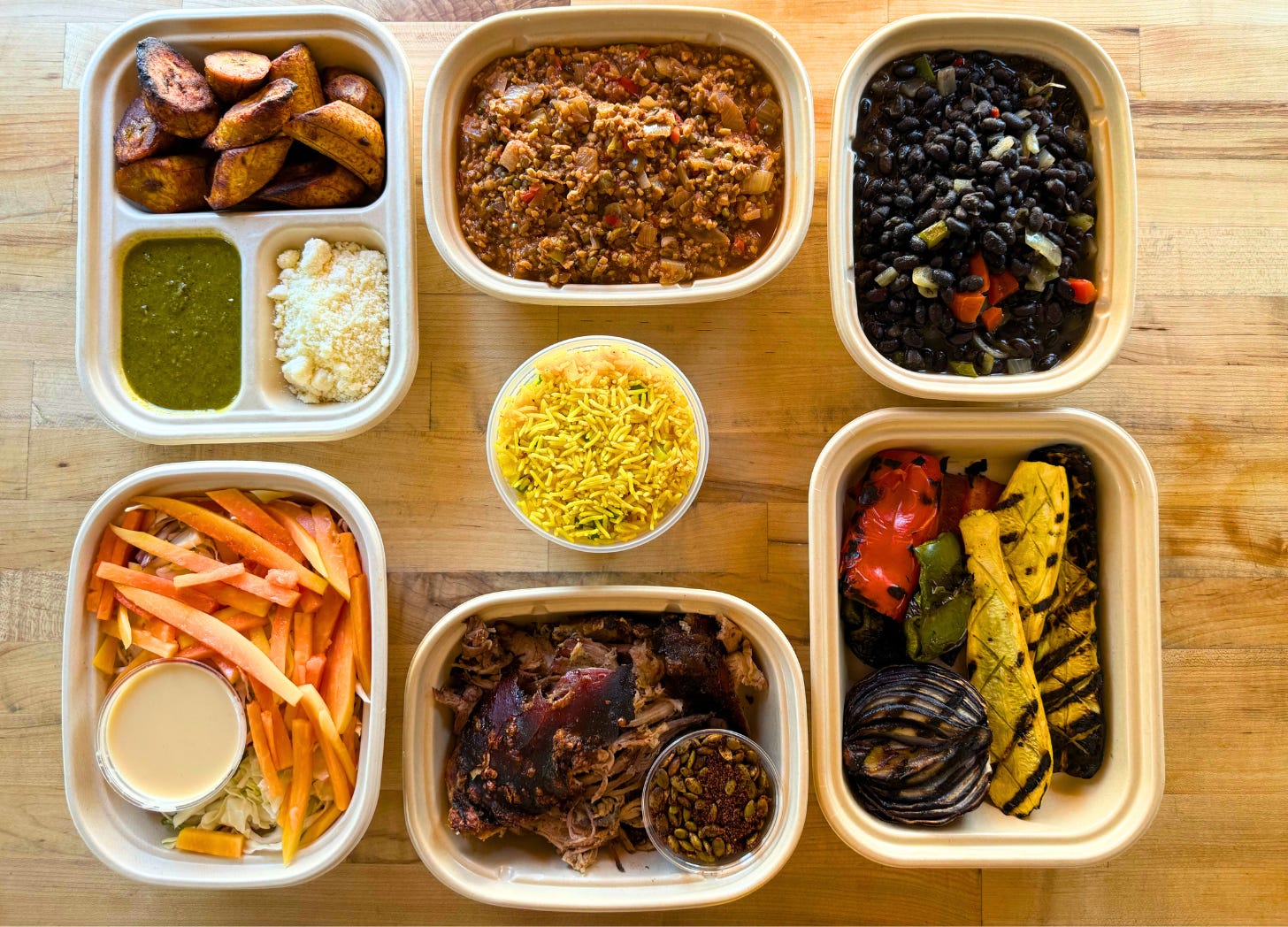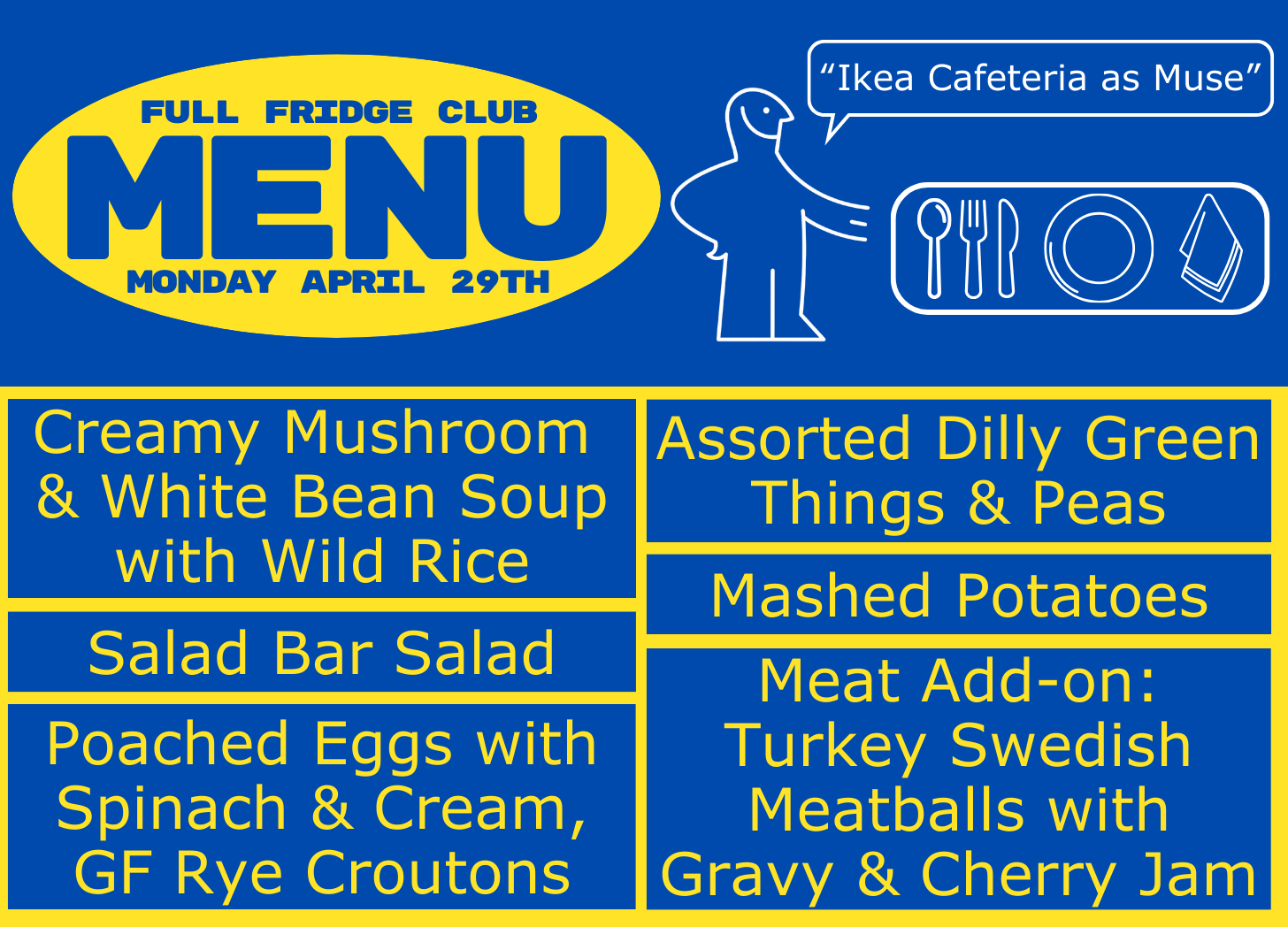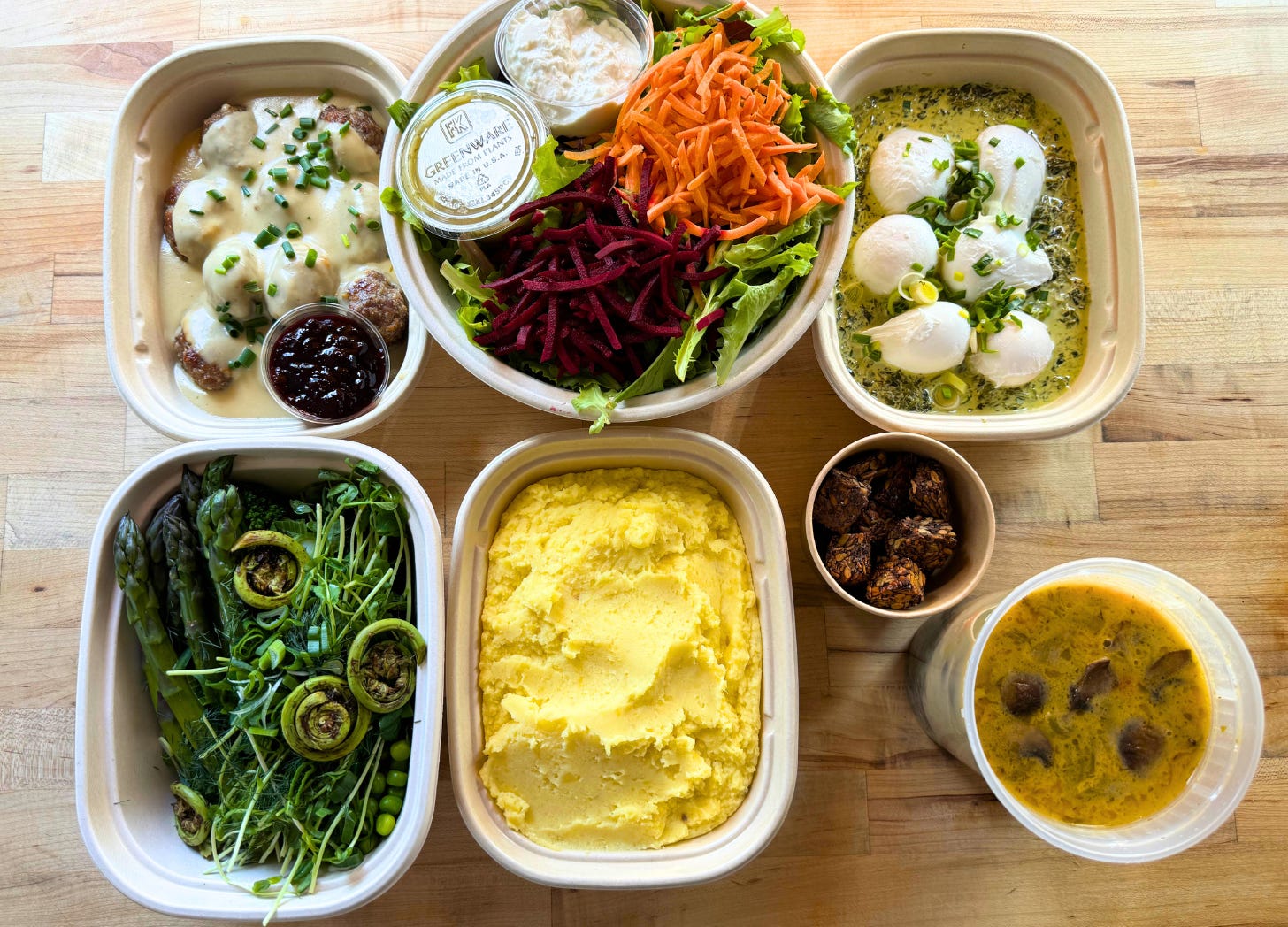Welcome to the club!
Editor’s note: In order to share all of our musings and photos, this newsletter will be clipped by most email providers. To read our entire newsletter, click on the link that says “view entire message” or you can read in full on the Substack app.
This month we hosted Queer Soup Night on our patio— again!
Queer Soup Night was created by chef and cookbook author, Liz Alpern (who was interviewed in 2019 by crew member Julia Turshen). Starting in Brooklyn, QSN has branched out to various local chapters in the U.S. and Canada, including here in the Hudson Valley. QSN is a volunteer-based event, where local queer chefs craft delicious soups for the local queer community— all to raise money for a local justice organization.
This is the third time we’ve hosted QSN on our patio: last July, supporting Trans Closet Hudson Valley, and last November, supporting Kingston Emergency Food Collab. You can follow QSN on Instagram to find events happening near you!
On Saturday, April 27th, we raised money for Sovereign Herbs— a Black Caribbean owned-and-run small scale farm, which provides fresh produce, free of cost to our predominantly Black and Brown low income neighbors in the Hudson Valley.
We had bread donated from Little Loaf Bake Shop and featured fantastic soups from our dear friend Stefano Diaz of The Meat Wagon, QSN organizer Chef Jodi Silberstein, and our very own Common Table crew member Stephen Kratzer!
Around 80 of you lovely queers showed up to chow down, chit chat, and support this incredible organization. And because of our lovely community, our QSN raised $900!
We had an extra week of Full Fridge Club this month, so let’s Dish. It. Out!
As always, if you’d like to help our work with keeping our local free fridges full, but you don’t live locally to order a Full Fridge Club service, you can always sponsor meals here!
And, if you are local and interested in learning more about Full Fridge Club, check out our website!
April Menus
These are our previous month’s menus, along with photos and insights from one of our chefs…
Monday, April 1st
Chef Julia: This menu was inspired by a few things. One is the tofu and walnut taco filling mixture I recently made in one of my classes, which we used here as part of a taco salad (the recipe is available below for paid subscribers!). Which leads me to the second inspiration: my love of tacos salads, a love I share with my spouse Grace (we make them at home all of the time). The third inspiration was a meal I recently made when I was visiting my brother and his family, including a brand new nephew. I made tomato rice and beans and lots of fixings and purposely made too much so I'd leave them with lots of leftovers. They said how happy they were to have the leftovers so I thought our clients would enjoy the same!
Monday, April 8th
An Ode to Zabar’s…
Chef Julia: I lived on the Upper West Side for four years and spent so much time (and money!) at Zabar's. These days I still make the trek there if I want to be reminded of that special chapter of my life. It brings me right back. This week's menu is an ode to their prepared food including so many of the dishes my Jewish New Yorker parents adore (borscht, pickles, kasha varnishkes, etc.). The menu is also an opportunity for Emmet to show off his pickling skills since they make the best pickles!
Monday, April 15th
Chef Julia: The jumping off moment for this menu was a "suggested post" video Instagram showed me a few weeks ago of someone making gnocchi-esque dumplings out of a dough made from blended tofu, chickpea flour, and nutritional yeast. I thought it would be perfect for FFC since we always try to include at least a couple of vegetarian protein options and our entire menu is gluten-free (this way it works for everyone and no one is an exception). We built the rest of the menu around the tofu "gnocchi" and kept everything pretty simple and classic. The tofu gnocchi recipe is available for paid subscribers (just keep scrolling!).
Paid subscribers get Chef Julia’s recipe for this Tofu “Gnocchi”— as well as a behind-the-scenes video of Chef Emmet making them (see below)!
Monday, April 22nd
Chef Julia: Emmet, Stephen and I have a 'Brainstorm Bike Rack' tab on our menu planning spreadsheet where we all put random ideas for various dishes. For a while Emmet had this plantain recipe parked there and we decided sometime in April would be the right time to build a menu around the dish. This was because although we try to use as much local produce as possible in our menus, April is a weird in-between times for our local farms since their winter storage crops are all gone and the spring stuff hasn't quite appeared yet. So this was the perfect moment for the baked plantains and the Cuban-inspired dishes we featured with them.
Monday, April 29th
Chef Julia: I was so excited by the ode-to-Zabar's menu that I thought it could be so fun to do an ode-to-Ikea menu because I just really love their meatballs. We decided to pair them with other slightly Scandinavian dishes like poached eggs with spinach, cream, and rye croutons and directly Ikea-inspired dishes like a 'Salad Bar Salad' which was really just an excuse to mix so many wonderful local vegetables in one place and add a scoop of cottage cheese because what's a salad bar salad without it?
Editor’s note: Meatballs are a staple in my household. My spouse makes these incredible ginger, scallion, and panko meatballs with roasted carrots, rice, toasted sesame seeds, and an amazing creamy, spic, honey-soy sauce mixture. I honestly can’t remember the last time I had meatballs the way we always ate them growing up— with Plain Jane, spaghetti… “No sauce, no sauce”—
*Intrusive Queer Thought*
This is where one of us of the Common Table crew let our little queer minds run amok!
Part of the endless joy of being a Beyoncé fan— aside from her unparalleled vocal talents, singular live performance skills, and relentless musicality— is how rich her songs are in history, references, and entendres. For a general audience, her music is infinitely entertaining, but there is always room for deeper exploration of the themes and journey she takes us on. And it’s not that these references render the music inaccessible to listeners (here’s to looking at you Ms. Tortured Poet), but rather, that they can inspire a rabbit hole of knowledge about the history of this performer and the history of music at large. And these intentional nods are not only lyrical, but imbedded into the music itself— whether that be including the well-known Italian aria “Caro Mio Ben” (that all of us Tenors are intimately familiar with) into the middle of “Daughter” (her take on a country murder ballad) by twisting the major key into a minor one or sampling Nancy Sinatra’s “These Boots are Made for Walking” into her upbeat jam of “Ya Ya” (that some consider the best song on the album). She even references herself in “Ya Ya” with the lyric and melodic motif of “Ooo-Oo-ooo” from Lemonade’s “Daddy Lessons”: Beyoncé’s first clear foray into the country genre with the infamous 50th CMA’s performance with the Chicks that faced such a strong backlash— due to Beyoncé’s liberal politics and status as a pop performer and not a country performer (*cough cough* RACISM)— that inspired the creation of Cowboy Carter. (And that’s not to mention that the Grammy-winning, Billboard Hot 100 record-breaking, fastest certified diamond debut single of a gay, black man only reached number 19 on the Billboard Hot Country Songs before being disqualified “on the grounds that it did not ‘fit’ the genre”.)
Cowboy Carter is Beyoncé’s eighth studio album and was released on March 29th. It has 27 tracks, divided into sections— I would argue five— by its conceit of acting as an invented radio station: “KNTRY Radio Texas”— a nod to her Renaissance tour performance of “KNTY 4 NEWS” in “America Has A Problem”. The DJ’s of said radio station include Dolly Parton, Linda Martell, and Willie Nelson— a genius choice to select country music greats to cement Beyoncé’s journey into country (and a surprising twist for fans like myself who saw these artists on the track list and incorrectly assumed their vocals would be featured in duets).
So…
Willie. Nelson.
Ol’ Shotgun Willie is featured on two tracks on Cowboy Carter– Track 6: "Smoke Hour ★ Willie Nelson" and Track 14: “Smoke Hour II”, the latter of which introduces the duets’ section of the album (except for the outlier “Flamenco”) and providing further validity to the idea of Beyoncé as a country artist with his interlude of “Sometimes you don't know what you like until someone you trust turns you on to some real good shit.”
Both tracks are tongue-in-cheek references to Willie’s famous penchant for cannabis, but "Smoke Hour ★ Willie Nelson" is the more interesting one to me. Within this 50 second track, sonically skipping though radio channels, there are a total of five song samples: "Laughing Yodel" by Charles Anderson, "Grinnin' in Your Face" by Son House, "Down by the River Side" by Sister Rosetta Tharpe, "Maybellene" by Chuck Berry, and "Don't Let Go" by Roy Hamilton. Within the first 27 seconds of this track, Beyoncé takes us on a history lesson of black pioneers in genres spanning vaudeville, gospel, blues, soul, R&B, jazz, and rock and roll— genres created by black artists, while simultaneously excluding and discrediting them.
Obviously, I can go on and on about the richness of her work, but this is an Intrusive Queer Thought, so where am I going with this?
Willie Nelson also popped back up in the music world a month ago in another way: releasing a duet with the masked, openly gay country crooner Orville Peck in a duet cover of Nelson’s 2006 song “Cowboys Are Frequently, Secretly Fond of Each Other” with a corresponding music video. The song was new to me and I was inspired by its cheeky outdated, yet oddly current lyrics, conflating gender and sexuality in ways that may seem overtly passé, but, to modern queer listeners, ring more true with our deeper context of the relationship between gender and sexuality (“And inside every lady there's a cowboy who wants to come out; And inside every cowboy there's a lady that'd love to slip out”). I was surprised by its unabashed humor and unabashed queerness and Willie’s willingness to join in– and even more surprised that Nelson had already released his own solo version of the song? Back in 2006? And that it was the first ever gay-themed mainstream country song?
I just HAD to learn more.
Known as the “gay cowboy song,” Nelson decided to finally release his version in 2006 along with the release of the acclaimed Ang Lee gay cowboy movie, which Nelson also features on the soundtrack with his rendition of “He Was A Friend of Mine”.
Nelson has been on record as a gay ally multiple times— clarifying his support of same-sex marriage in a 2013 interview and stating in a 2015 interview, asking him if he is a gay right’s supporter: “Yes, I am. I'm a supporter of common sense. I've known straight and gay people all my life. I can't tell the difference. People are people. We'll look back and say it was silly anyone ever argued about it. I never thought about marriage as something only for men and women. Gay people should be just as miserable as the rest of us [laughs]. Love doesn't discriminate, and it shouldn't be discriminated against.” Nelson is also receiving an abundance of praise for his allyship due to this duet.
I didn’t want to be as impressed as I was. What stereotypes in me— a 4-H farm girl— did I have towards bigotry in country music that I needed to work through and unpack?
So, I wanted to give Willie the benefit of the doubt. I checked out his compilation album Lost Highway that featured the gay cowboy anthem at track 16.
And then there was track 17…
The 2009 album ends with "Ain't Goin' Down on Brokeback Mountain.” Assuming this was a continuation of the cheeky queer themes of the previous track, I gave it a listen. Is it cheeky? Sure. The “going down” is a clear innuendo for gay sexual activity, which Willie “ain’t” doing.
And the end of the chorus is just the repetition of:
“That shit ain’t right.
(That shit ain’t right.)
That shit ain’t right.
(That shit ain’t right.)”
17 times in the 2:53 song.
He even threw in a quick “What you do's your business hoss. You can buy me a beer, and then fuck off” just to reeeally get the point across.
And listen, these are the facts:
Willie Nelson has been and is a vocal ally for the LGBTQ+ community, with his words and his music.
This #nohomo album ender includes undeniable homophobic lyrics.
Yes, it was 2009. Yes, people can change. Yes, looking towards billionaire celebrities as thought leaders will only ever really disappoint.
It just makes me think of inclusivity. Who has the power to include— and, therefore, exclude.
Even The Queen of Country, who describes herself as a drag queen and has had numerous queer rumors flying around for years surrounding her arguably sapphic ballad “Jolene” (covered by Beyoncé, who reinterprets the song as unquestionably heterosexual), has consistently been notoriously silent in regards to her home state of Tennessee’s Drag Ban— whose consequences would so greatly effect trans people that I canceled my 30th birthday trip to Dollywood last year.
I’m not giving up on country music. But I am giving up on putting all my eggs of hope into the basket of opportunistic capitalists. Include, exclude, validate, discredit— they’re just broken humans like us after all.
And if the best I can do is carve out a little space for myself, then maybe that’s good enough.
-Timmy Bruck
And that was our April!
Below, for paid subscribers, you’ll find two recipes from our April Menus— Super Savory Crumbled Tofu + Walnuts and Tofu Gnocchi— scaled down and tested by Julia Turshen— and our Side Dish, where you can watch Chef Emmet crafting Tofu “Gnocchi”.
Thank you all for joining the club and we’ll see you next month!
Keep reading with a 7-day free trial
Subscribe to Full Fridge Club: Dishing It Out to keep reading this post and get 7 days of free access to the full post archives.





